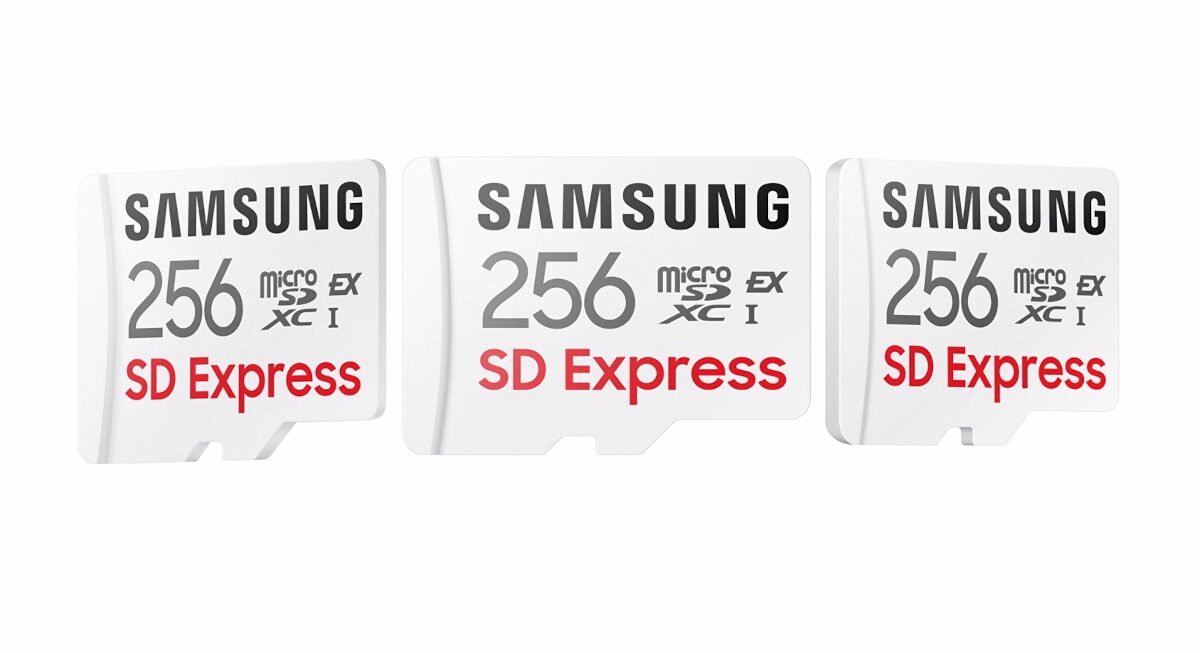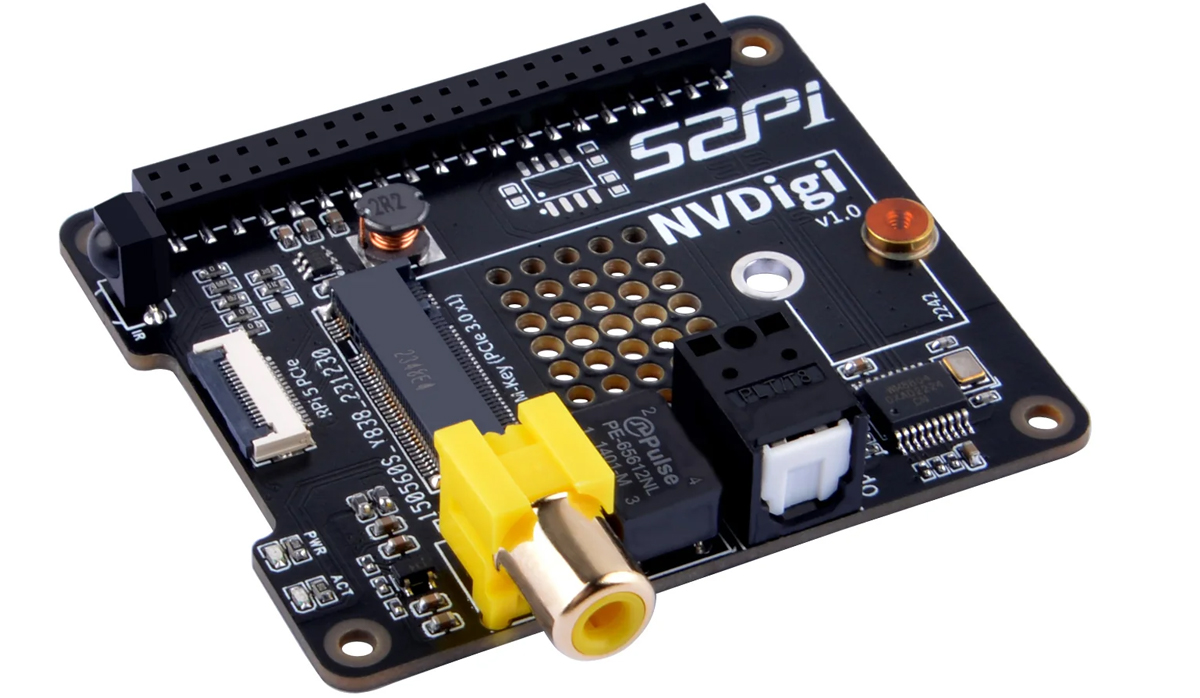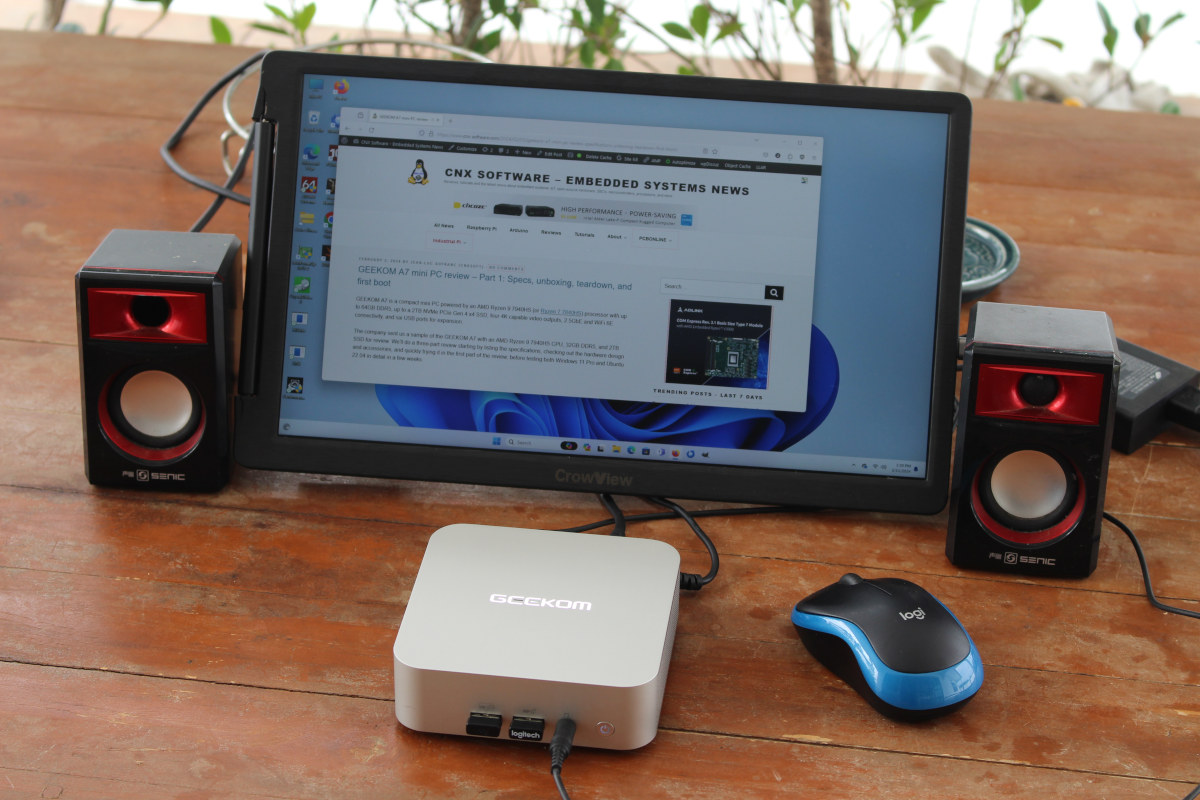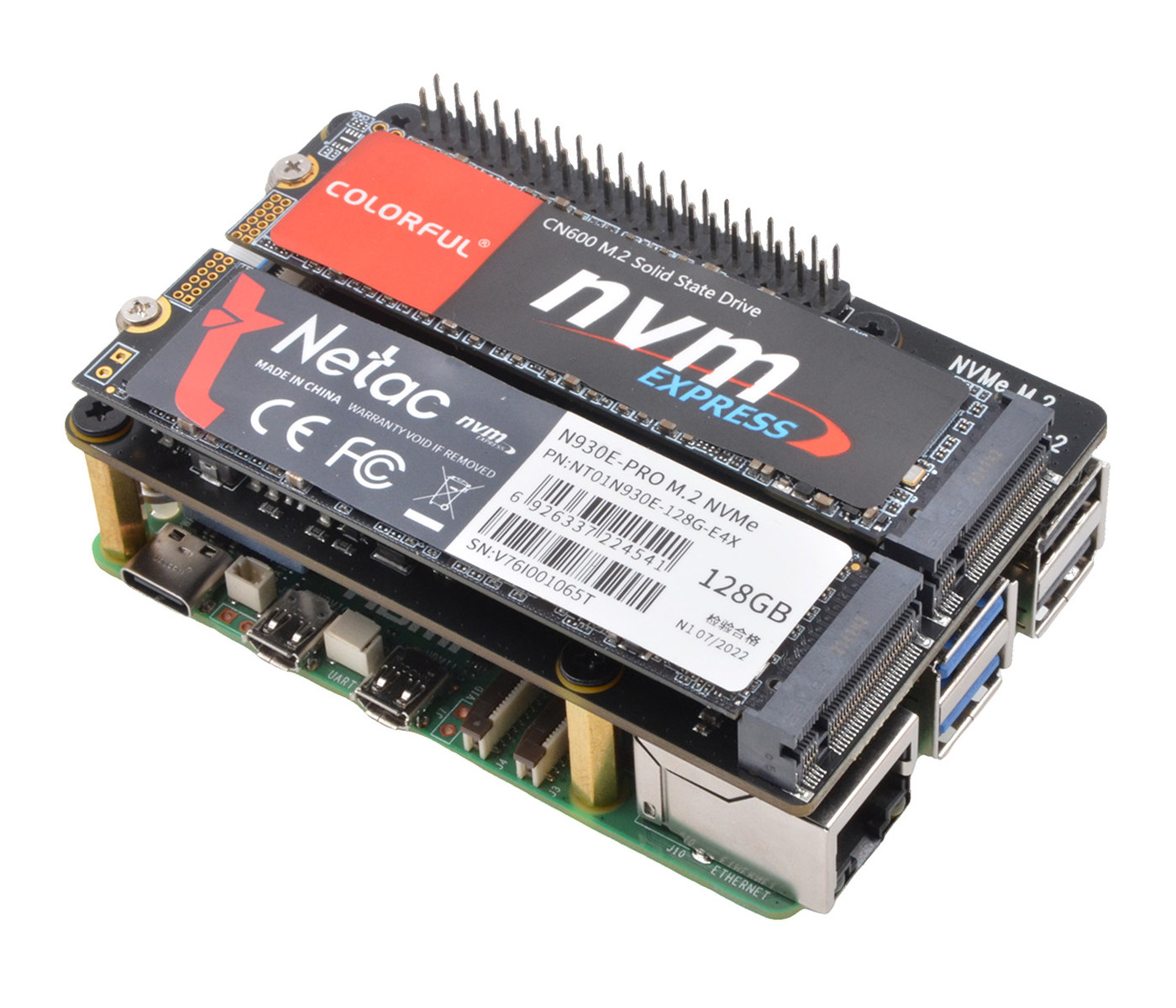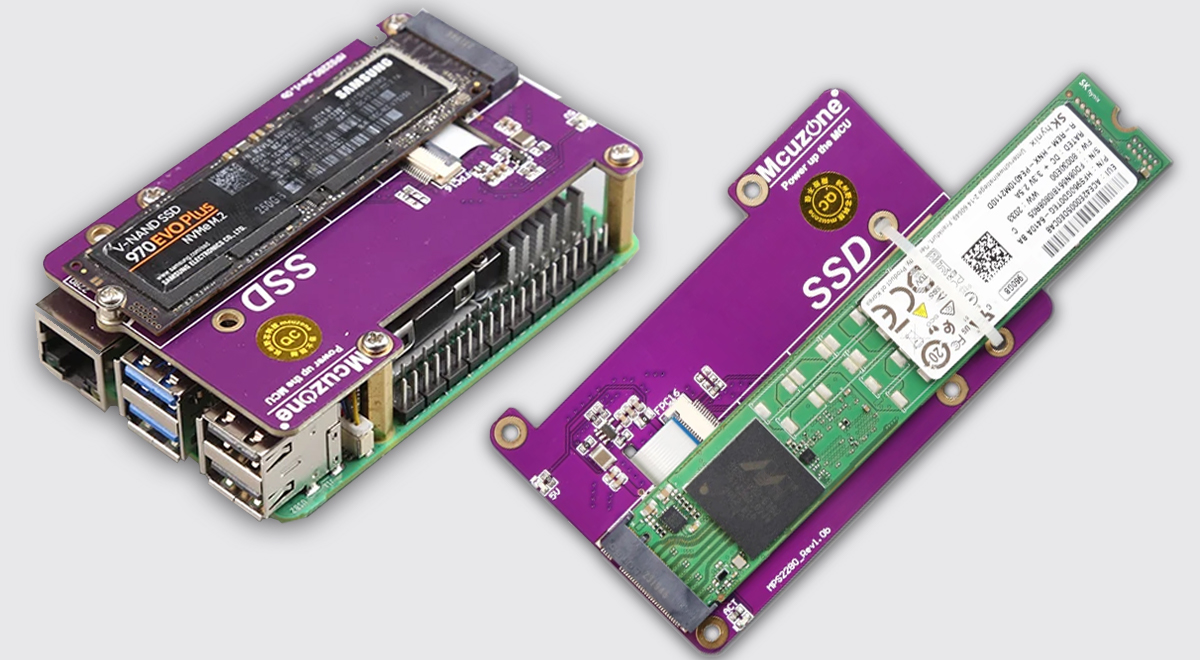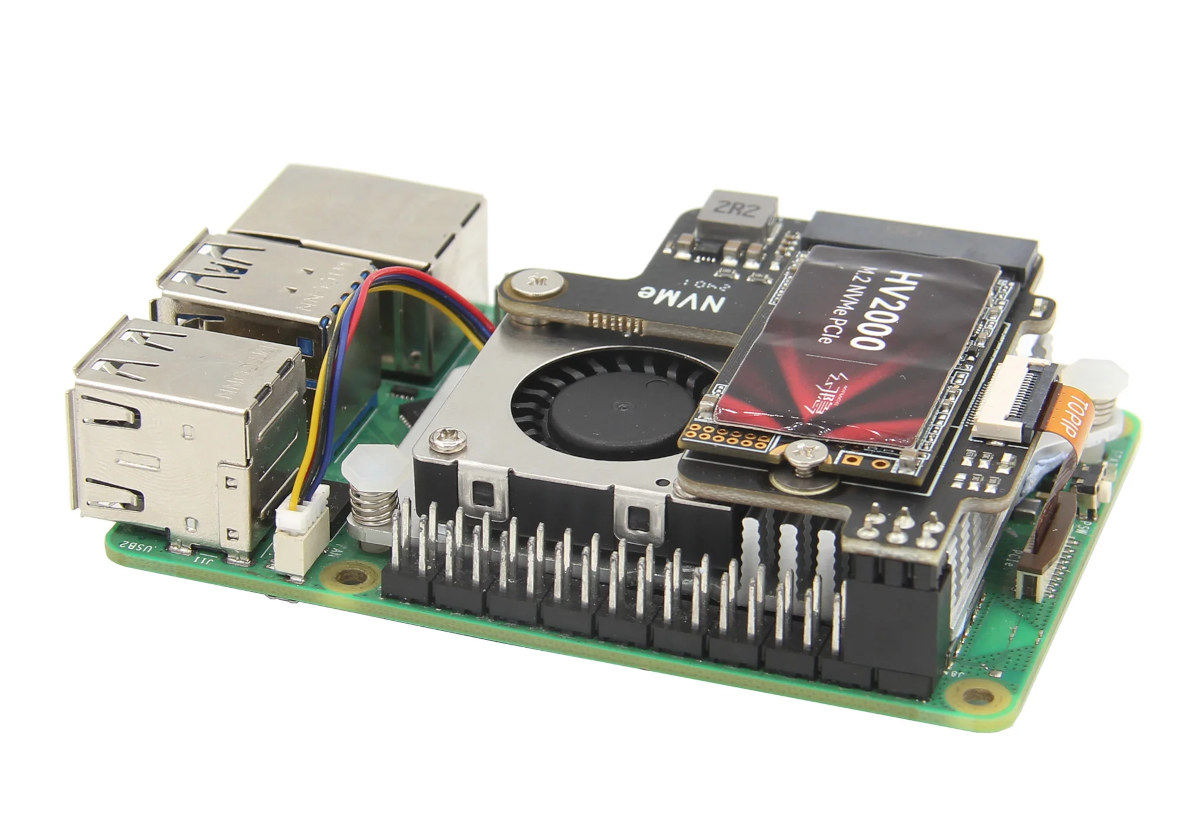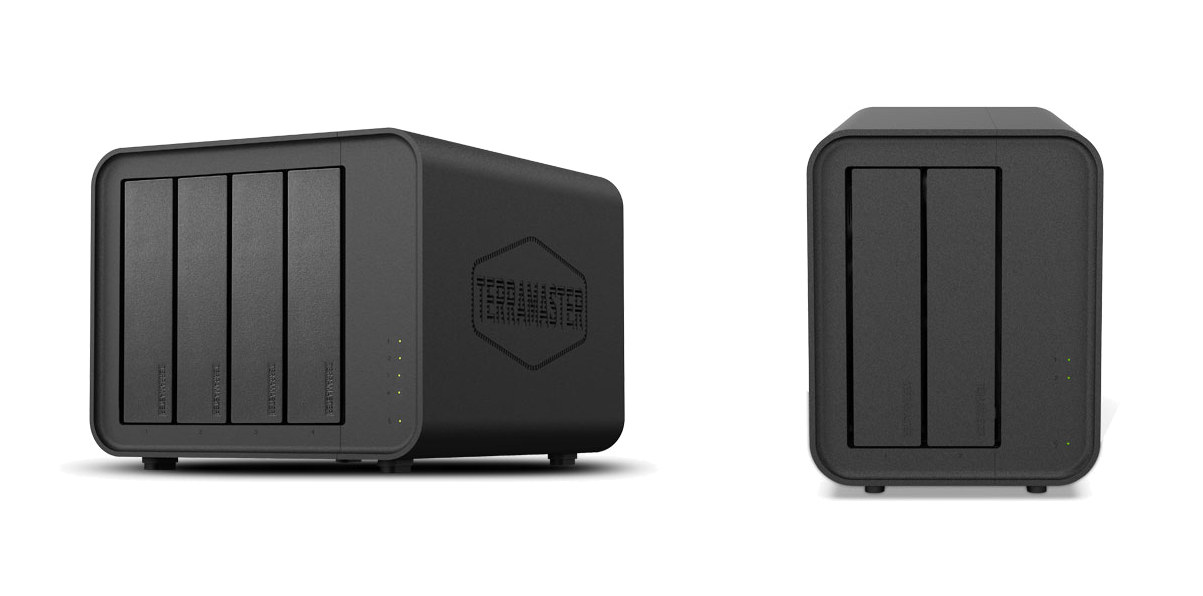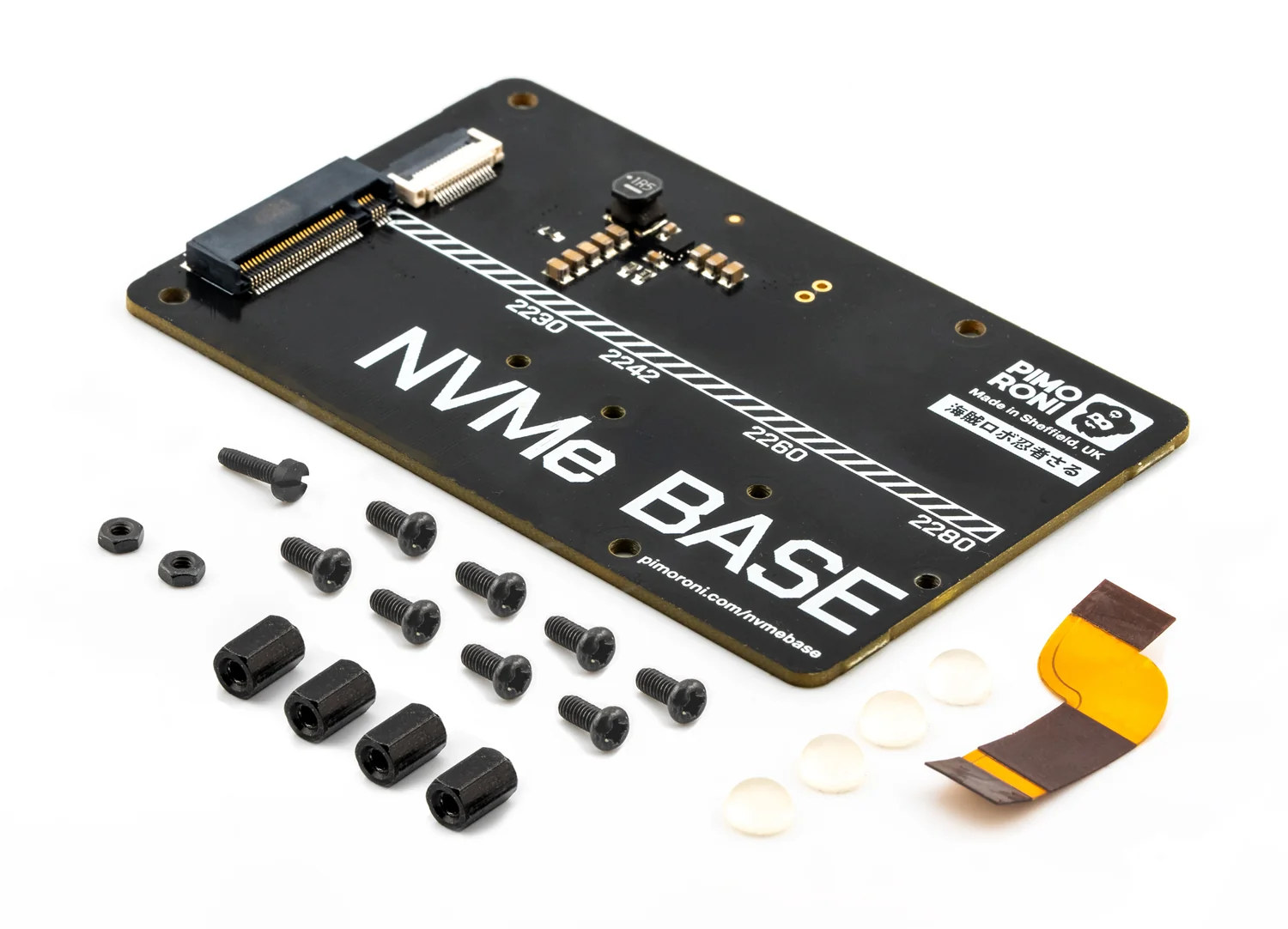Samsung has just started sampling its 256 GB SD Express microSD card (aka microSD Express card) with a sequential read speed of up to 800 MB/s through its PCIe/NVMe interface. The SD Express standard was first introduced in the SD specification ver 7.0 in 2018 adding pads for PCIe/NVMe interfaces in full-sized SD cards before the microSD Express standard was introduced in the SD 7.1 specification the following year. Since then, the SD association further improved the standard promising ever faster SD Express speeds up to 4GB/s and microSD Express speeds up to 2GB/s. Saying the adoption of the new SD Express and microSD Express standards has been slow would be an understatement, and the Samsung 256GB microSD Express card looks to be the world’s first such storage device. Looking at full-size SD Express cards, I could only find one on Amazon for $59.99 with 256GB capacity, 820 MB/s read […]
52Pi NVdigi Expansion Board for Raspberry Pi 5 combines HiFiBerry Digi+ audio output with M.2 PCIe x1 slot
The 52Pi NVdigi is another PCIe expansion board for the Raspberry Pi 5 which integrates HiFiBerry Digi+ to provide high-quality S/PDIF output. It also features an M.2 PCIe x1 slot that supports NVMe 2242/2230 SSDs. Furthermore, it offers an optical output (TOSLink) and an RCA output for versatile audio connections. The HiFiBerry Digi+ is a high-quality S/PDIF output for the Raspberry Pi. It uses the I2S sound port that connects directly to the CPU without the need for an additional USB conversion. It supports sample rates up to 192kHz/24bit. 52Pi NVdigi Expansion Board Specification: HiFiBerry Digi+ Integration – Provides high-quality S/PDIF output for Raspberry Pi 5. Direct I2S Connection – Connects directly to the CPU via the I2S sound port for optimal audio. High-Resolution Audio – Supports sample rates up to 192kHz and 24-bit depth for immersive audio. Multiple Audio Outputs – Features both optical (TOSLink) and electrical (RCA) outputs. M.2 […]
GEEKOM A7 review – Part 2: Windows 11 Pro tested in a compact AMD Ryzen 9 7940HS mini PC
We previously had a look at the hardware of the GEEKOM A7 with an unboxing and a teardown of the powerful AMD Ryzen 9 7940HS mini PC with 32GB DDR5, a 2TB NVMe SSD, four 4K-capable video outputs, and high-speed interfaces such as USB4 and 2.5GbE, as well as WiFi 6E and Bluetooth 5.3 wireless connectivity. We’ve now had time to test it with Windows 11 Pro in detail, so in the second part of the GEEKOM A7 review, we’ll report our experience with the mini PC including a software overview, features testing, various benchmarks, networking and storage performance testing, fan noise, power consumption, and more. Software overview and features testing The System->About window confirms the GEEKOM A7 mini PC is powered by an AMD Ryzen 9 7840HS processor with Radeon 780M graphics with 32GB RAM and runs Windows 11 Pro 23H2 build 22631.2861. That also means we only had […]
Add two M.2 NVMe SSDs to Raspberry Pi 5 with Geekworm X1004 HAT+
We’ve seen a range of PCIe HAT(+) for the Raspberry Pi 5 taking one NVMe SSD, but Geekworm X1004 is different as it can take up to two standard M.2 2280 SSDs over the Pi 5’s PCIe connector and 40-pin GPIO header. The official Raspberry Pi 5 M.2 HAT+ is not available yet, but we already have an embarrassment of choice with products such as the PineBerry Pi HatDrive, Waveshare PCIe To M.2 HAT+, Pimoroni NVMe Base, and the Geekworm X1003. The latest X1004 adds even more options with support for two M.2 SSDs for up to 8TB storage, although this may not make that much sense on the Pi 5 as we’ll discuss further below. Geekworm X1004 specifications: Supported SBC – Raspberry Pi 5 only Chipset – ASMedia ASM1182e PCI express packet switch with 1x PCIe x1 Gen2 upstream port and 2x PCIe x 1 Gen2 downstream ports 2x […]
Mcuzone MPS2280 M.2 NVMe HAT for Raspberry Pi 5 takes an up to 22110 Gen3 SSD drive
The Mcuzone MPS2280 M.2 NVMe HAT is another PCIe to NVMe adapter board built for the Raspberry Pi 5. What sets it apart from other boards is that it supports 2280 SSDs and offers the option to Jerry-rigg a 22110 SSD with zip ties. Previously we have covered many PCIe to NVMe expansion boards such as Pimoroni NVMe Base, Geekworm X1003 PCIe to NVMe SSD adapter, and PineBerry Pi’s HatDrive, so feel free to check those out if interested. Mcuzone MPS2280 M.2 NVMe HAT specifications: PCIe Support – Compatible with PCIe x1 interface, offering Gen2 and Gen3 modes. SSD compatibility – Supports M.2 M-key interface with 2280, 2242, and 2230 size SSDs, and offers the option to Jerry-rigg a 22110 SSD with zip ties. SSD booting – Enables booting from an NVMe SSD, with options for storage expansion. Alternatively, the system can boot from TF while using the SSD for […]
Geekworm X1003 PCIe to NVMe SSD adapter for Raspberry Pi 5 works with the active cooler or official case
The Geekworm X1003 is a well-designed PCIe to NVMe expansion board for the Raspberry Pi 5. It supports 2230 and 2242 SSDs with M.2 M-Key, does not interfere with the airflow when using the active cooler, and fits snugly within the official Pi 5 ABS case although you need to take out the fan layer from the top of the case. We previously wrote about the low-cost Waveshare PCIe to M.2 adapter, but user Rex Tang highlighted a design flaw with its 2230 screw mount affecting 2242 SSDs that have chips on both sides of the module. Then, user PANiCnz recommended the X1003 with a compact design that doesn’t have the same issue. We also covered other PCIe to NVMe expansion boards such as Pimoroni NVMe Base and PineBerry Pi’s HatDrive, so feel free to check those out if interested. Geekworm X1003 PCIe to NVMe adapter specifications: Compatible with Raspberry […]
TerraMaster unveils F2-424 and F4-424 2-bay/4-bay NAS systems powered by Intel Processor N95 SoC
We have already covered NAS systems based on the Alder Lake-N processor such as the 2-bay AAOSTAR R1 and the 6-bay ZimaCube both powered by an Intel Processor N95. But both are made by smaller companies, and TerraMaster has now introduced the 2-bay F2-424 and 4-bay F4-424 NAS systems equipped with an Intel Processor N95 quad-core processor. The two models ship with 8GB DDR5 memory by default, upgradable to 32GB, and feature two M.2 2280 sockets for NVMe SSDs, dual 2.5GbE networking, and two 10 Gbps-capable USB 3.2 host ports, one being a USB Type-A port, and the other a USB Type-C port. The multimedia capabilities of the Processor N95 CPU can be used through an HDMI 2.1 video output. TerraMaster F2-424 and F4-424 specifications: SoC – Inte Processor N95 quad-core Alder Lake-N processor @ up to 3.4 GHz with 6MB cache, 16 EU Intel UHD graphics @ up to […]
$14 Pimoroni NVMe Base adds an M.2 PCIe socket underneath the Raspberry Pi 5 SBC
Pimonori has started to take pre-orders for the NVMe BASE add-on board that adds an M.2 PCIe socket underneath the Raspberry Pi 5 SBC with support for M.2 NVMe SSDs and M.2 AI accelerators with 2230, 2242, 2260, or 2280 sizes. It’s not the first M.2 expansion board for the Raspberry Pi as the PineBerry Pi HatDrive TM1 and BM1 add-on boards launched last month can also do that either on top of on the bottom of the Raspberry Pi, but the NVMe BASE is quite cheaper at just 13.50 GBP inc. VAT or $14.29 ex. VAT at the time of writing. NVMe Base key features and specifications: NVMe Base PCB M.2 M-key slot Holes for 2230, 2242, 2260, and 2280 sized M.2 modules Raspberry Pi FFC PCIe connector ‘PCIe Pipe’ Flat Flex Cable M2 bolt and 2x nuts for SSD mounting 4x 7mm M2.5 standoffs for base mounting 8x […]


